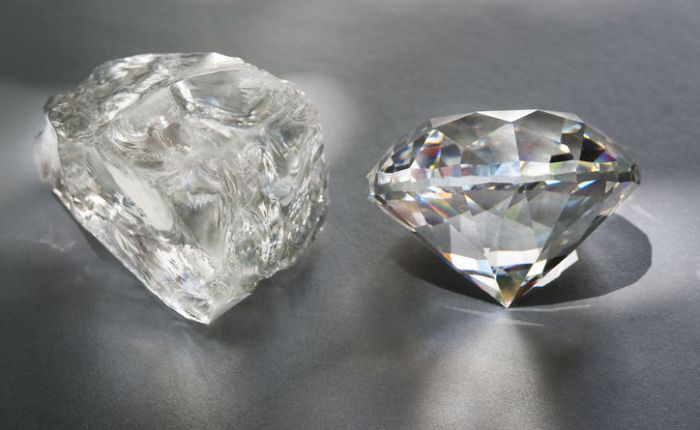Back in March God started the arduous process of tilling the earth of my soul. His spade pierced my hardened ground, slowly overturning things that had not seen the sun in a long, long time. Patched-up broken hearts, learned defense mechanisms, and this fun thing called Codependency were suddenly laid bare above ground; worms still groggy from being lifted out of their cozy dwellings, groaning and squirming, looking for a way to burrow away from the sun. One of these surfaced sicknesses was my view of the Gospel. I should have guessed this earlier, considering speaking or typing the word nearly brings me physical pain. At points over the years He revealed small reasons for why my Spirit reacted so strongly to how I saw the word “gospel” being used. For example, the fact that much of the American church lives as Christian Deists, believing God started the work of the Church at the cross, gave us the Bible (thus everything we need for life and Godliness), then ascended, leaving us to finish His work while He waits on His throne for us to get ‘er done. That’s not the Gospel I know. That’s not the Gospel that is continued through the New Testament. He doesn’t save us at the point of our Salvation and then send us off, leaving us to spend the rest of our lives “making it up to Him” or proving to Him that He made a good choice in picking us. There are many more, and I could get all up on a bunch of soap boxes, but I don’t want that to be the point of this. The point is that in meeting Him, knowing just how Good He is and how Good it is to be known by Him, the “good news” I’d been taught didn’t seem so good. The view I’d caught had so many strings and burdens tied to it that I was left to weakly say, “Sure, it’s good news,” with a shrug and a lowercase ‘g’.
My view of the good news went something like this: I had been taught that we were a block of mud, muck, and manure. Gross. And God thought so too. When we came to God and said we wanted Him, He took a little wooden cross and stuck it in the middle of our block of “yuck”. Then, “sanctification” was Him chiseling, scraping, and wiping everything out of the way so that the cross was clearly visible. Anything left of us (including our personality, likes and dislikes, preferences, talents, and the things that make us smile) was thought to be the mud left on the cross, and thus was keeping people from seeing Him. Remember, in this picture, the manure is us. The end goal of sanctification was to be completely “surrendered” until nothing remained of us; the only thing left standing was the cross. Since it was the same cross put inside other Christians, if we all “did our jobs” in the sanctification process, we would all look identical, and thus be “unified.” See why didn’t seem like very Good News?
Here’s the GOOD NEWS: that’s not what it is at all. Instead, God created a beautiful little gem (that’s us) and in that gem was all the sparkle of our personality and gifts and the things that make us smile. The curse of sin knocked us out of our Creator’s hand and rolled us around in the muck until we were completely covered in it, with no trace of the gemstone still inside. In fact, a lot of us have completely forgotten we ever were a jewel in the first place. We come to God, cemented in the muck and say we want Him. Sanctification then, is Him chiseling, scraping and wiping away all the yuck of sin, to get back to the beautiful us that He made at first. We were fearfully and wonderfully made, knit together intricately in our mother’s womb. When He looked at Adam and Eve He said they were “very good.” When we place ourselves in His hands, He sees us the same way! He then goes about getting rid of anything in the way that would keep others, and ourselves, from seeing the beauty He put in us.
With us as a clean, but rough, gemstone in His hand, He starts faceting us. For each gemstone there is a perfect, unique way to be cut that best catches the Light, and it’s the same with us. We’re all different types of stones, and different cuts will bring out the ultimate shine of the Spirit He put in us. This is gentle, hard work as He cuts and smoothes and buffs. At the end of it all, we will be the most amazing handful of jewels, glittering and shimmering in His light. In this, unity doesn’t mean we all look the same — no, we’ll look quite different. Shades of crystal, sapphire, emerald, and ruby, all perfectly faceted by the same Jeweler. And because it’s the same Jeweler writing all of our stories, we each fit perfectly together into a beautiful crown to lay before Him.
I used to say “Everything that is good in me is Jesus,” but I can’t anymore. Instead, everything that’s good in me is because of Jesus. He looked at me when He made me and He said I was “very good,” and He says the same about you too. It’s all because of Him that we can be anything beautiful, but because of Him we are beautiful. With the old view of the Gospel it made sense why I didn’t feel loved by some people in the church, why it felt like they didn’t want to get to know me for me. They didn’t. They couldn’t. “How can anyone love a pebble in their shoe?” (Oh Ever After, you’re so unintentionally perfect for this.) If our view of ourselves is mud and yuck keeping people from seeing the wooden cross hidden inside us, then that’s how we have to see other people too. There’s no room for real grace here, or for really enjoying and appreciating one another as our dear brothers or sisters. All that’s left is stilted, robotic handshakes at church meet-and-greet time, and awkward accountability sessions. This “love” has no patience to get down in the mud with someone to pull them out, because it doesn’t believe there’s something good in the mud to pull out. Everyone is the mud, and that’s that.
Oh but if we’re all jewels I can look at you and catch sight of the sparkle hidden under the dust. I can say, “Wow, God made you beautiful!” and I can say, “Let’s fight together to get the mud out of the way so you and everyone else can see just how precious you are in God’s eyes.” I can be beyond jealous for you that all the muck slides off and we can rejoice together in the Lord as you twist and twirl and sparkle. And if you’re still being faceted, if your rough edges jut out and cut me, there’s no need for harshness or impatience from me, because I know that it’s not you that hurt me, just the stuff on the outside that is now passing away. In this, there’s also no room for self-righteousness, for being mad at someone for pointing out our faults. You see, if you’ve been told that you’re the mud and you believe it, but you want to hold onto the last remaining bits of self, you’re going to bite and attack anyone who comes anywhere near talking about the mud. They may be wanting it to get out of the way so you, and everyone else, can see how beautiful you are, out from underneath the mud. But if you think the mud is you, then it is a personal attack on your being, and you can’t allow that. Oh please, child. Please see that you are far more than the mud you’re defending. Please let us walk with you in light and truth. I’m not going to defend anyone’s mud (it’s mud for goodness sake, just let it go) but I sure as heck am going to remind you the mud is not you. Let it go. Let it slide off. Let Him scrub and facet you. You are beautiful. I am beautiful. I want to dance together under the Light of our King as we sparkle in His eyes.
Now, this analogy isn’t perfect. We are so much more dear to Him than any precious jewel. He loves us as sons and daughters, locked hand in hand as we run to give Him the biggest hug. That is far better than being even the most beautiful gemstone. But this analogy did bear fruit in my life. I’ve been able to love people so much more wholly and openly, having grace and strength in encouragement to grow that I haven’t had before. And now The fruit of this message 4 months later is that if someone were to come up to me and ask me why I’m here, what makes me worth it to the King or why on Earth He would pick me, I’d just shrug, smile this child-like, innocent grin, and say, “Me. Me is enough for Him. He said so, so I’ll believe it.” And I’ll boldly approach the throne of grace with confidence… aka, run like a giggling little girl, hair flying out behind me as I jump into the arms of my Daddy who’s laughing too.
And We sparkle.


